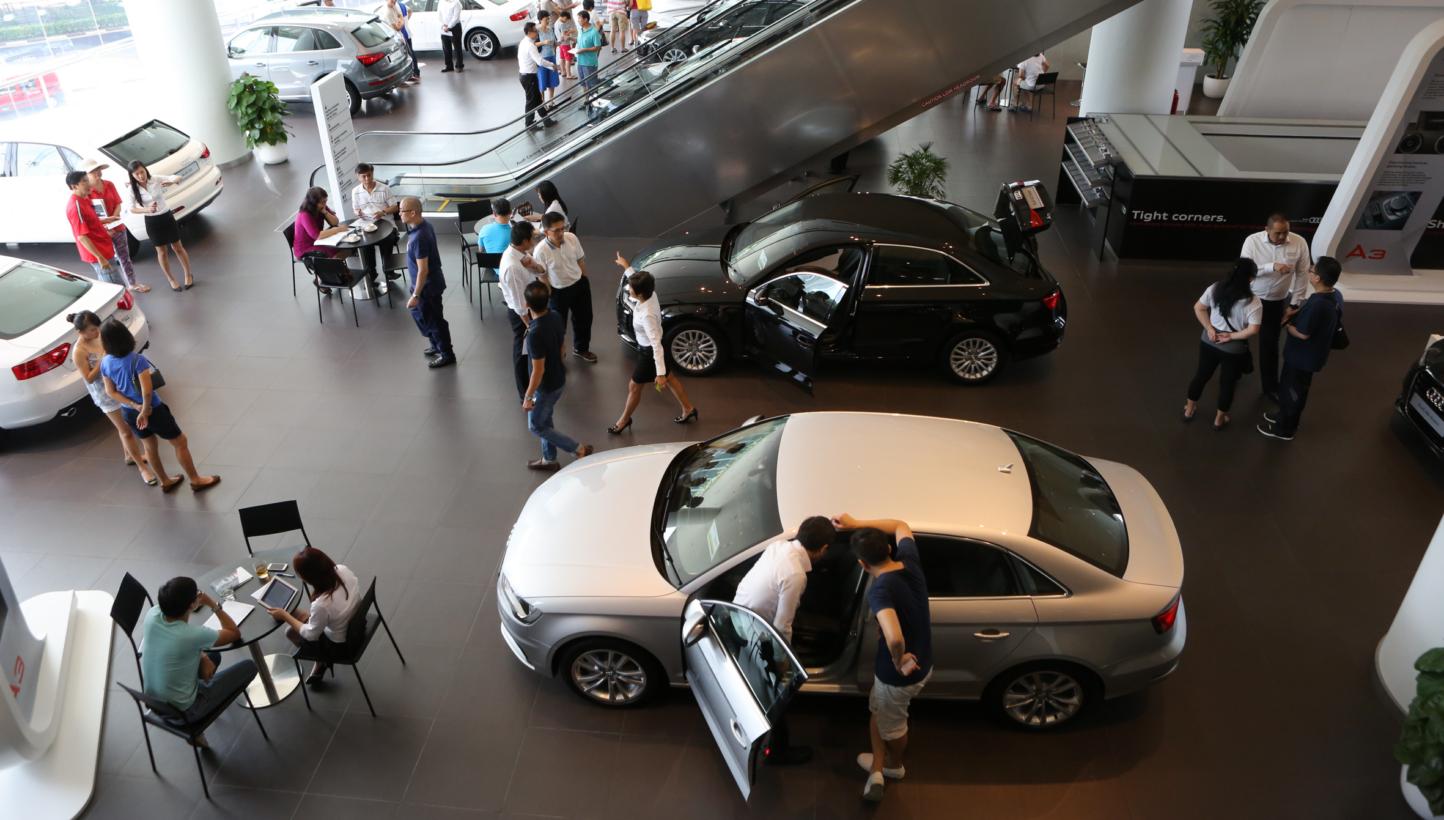Fear not, COE prices will fall
The next COE drought will arrive only in 2019
Sign up now: Get ST's newsletters delivered to your inbox

The fear of having to pay more for a car come July has driven people to showrooms.
PHOTO: ST FILE
Follow topic:
Lately, I have been feeling a little like Dustin Hoffman's character in Marathon Man.
In an unforgettable scene from that 1976 hit movie, his character is tortured with a dentist's drill by a villain who keeps asking: "Is it safe?"
Instead of that question, I am bombarded with this one: "Will COEs drop?"
I had an answer for the first 145 times I was asked ("yes, it will drop, because the COE supply will rise sharply"). But now, I am so numbed I just stare blankly and grin.
Going by what has been happening in the last couple of months, it would seem that an expanding supply is not translating to lower prices.
Why? Well, if you put that drill away, I will tell you. First, the Government announced that the Carbon Emissionsbased Vehicle Scheme (CEVS) will be more stringent from July 1.
That means cars enjoying tax rebates of between $5,000 and $20,000 today will be entitled to much smaller breaks, if at all.
Some of those that are in the neutral band today will start to attract tax surcharges. And those already incurring surcharges will incur higher surcharges.
The fear of having to pay more for a car come July has driven people to showrooms like lemmings to cliffs.
Second, a senior minister of state mentioned in Parliament recently that a zero-vehicle-population-growth policy may be in the offing, leading to more fear.
Are the fears unfounded? Even without a drill in my mouth, I will say yes, they are unfounded.
Believe it or not, car dealers have not been passing those CEVS rebates fully to consumers. For that reason, they are unlikely to raise prices by the same quantum of CEVS adjustments come July. Doing so is risky as the market is highly competitive. There will also be models (new and existing) that will qualify for tax breaks.
For those reasons, most dealers will partly absorb CEVS surcharges - just as they partly absorbed raised additional registration fees recently.
In the near term, the market might even evolve around the revised CEVS, with more turbo, diesel, hybrid and electric models that tend to emit less CO2.
As for the zero-growth factor, it is unlikely to influence COE supply significantly over the next few years, simply because the annual supply will be huge till 2018. Also, the growth cap is already at 0.25 per cent today. So zero will not make a big difference - that is, until the next COE drought arrives (starting from the latter half of 2019).
Meanwhile, those who gave in to their fears have helped to push up COE prices by more than $10,000 since February. That alone has negated most, if not all, of the savings they hope to get by beating the July CEVS revision.
So if you feel a little lemming-like, go lie down. It should pass. There is no point in rushing.
After all, the whiz kids at the Ministry of Finance are expecting premiums to fall. Of course, they will never say so directly, even if you strap them to a dentist's chair. But their message is loud and clear.
In their estimates for this year's Budget, they stated that revenue from vehicle quota premiums are projected at $5.08 billion - 39 per cent more than last financial year's revised estimate.
We know that the COE supply will easily be double last year's. If premiums stay unchanged, COE revenue will double - not rise by just 39 per cent.
So we can deduce, safely, that premiums will fall. Using the finance ministry's estimate as a guideline, I would venture to say that car premiums should average $50,000 (cars up to 1,600cc) and $60,000 (cars above 1,600cc) this year. Prices will drop further next year. And the next.
Of course, the fear factor might throw a spanner in the works and screw up those estimates.
The other thing is this: If car dealers know you are desperate because your car is expiring soon, they will capitalise on that. So for your own good, do not be desperate.
The bottom line? If people put their inner lemming at rest, COE prices should slide. Yes, it is safe to make that assumption. Quite safe.
christan@sph.com.sg

